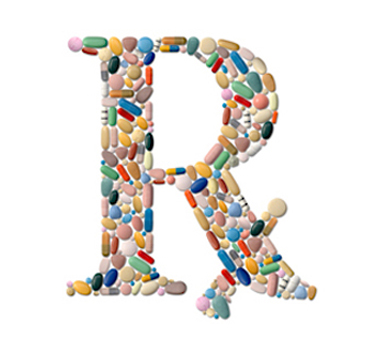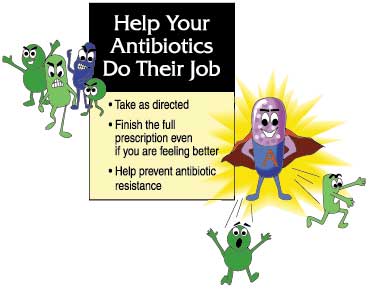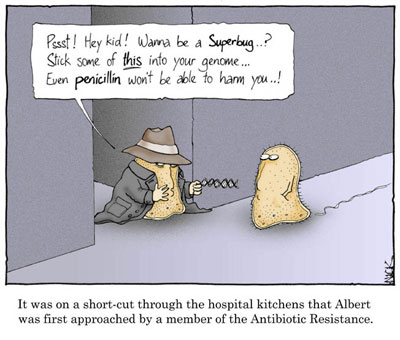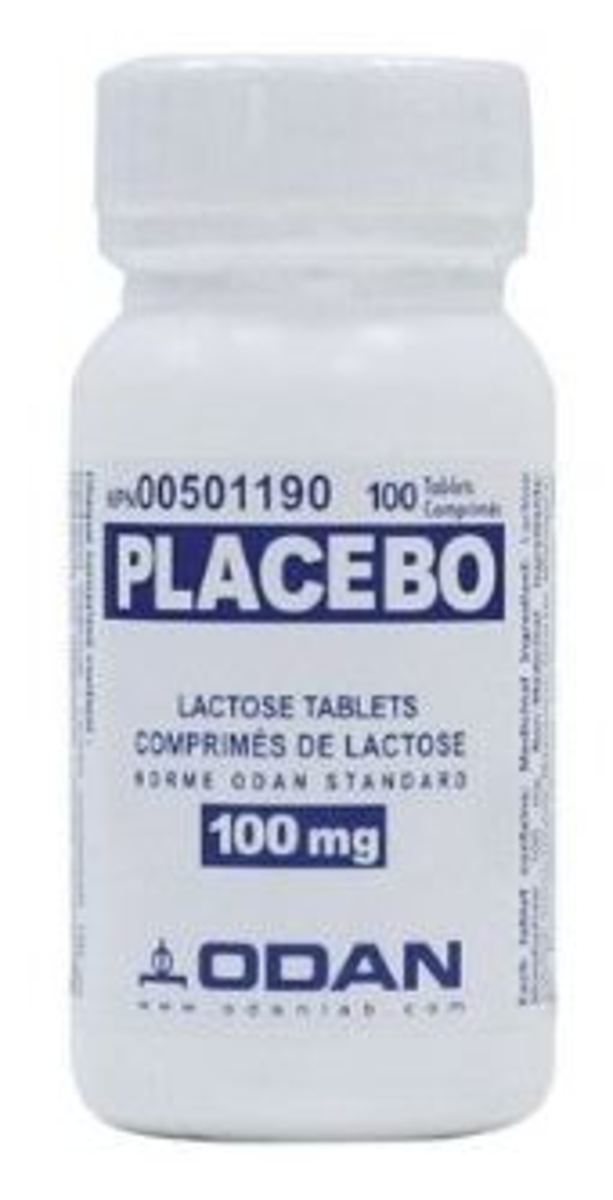Antibiotics: When You Need To Take Them and When You Don't
The Kind of Scary/Super Cool Truth about Bacteria
Guys, we are loaded with them. In fact, scientists have concluded (as of 2012) that for every single home-grown human cell, we have 10 bacterial cells - and if you do the math (or let the scientists do it), that means that your average 200 pound person is carrying around about 6 pounds of bacteria!
Grossssss.
But not really: the bacteria present in your body are more or less keeping you alive. They help you digest and absorb nutrients from your food, they help you fight inflammation, and I bet there are even some that are saving money to help send your kid to college. Bottom line: you don't want 'em all dead. But isn't that what antibiotics do? Well, yes - to different degrees, depending on the kind. And that's why you need to know what you're taking and why.

Antibiotics: Two Different Approaches
The term "antibiotic" is derived from the Greek words for "against" (anti) and "life" (bios), and as a drug they are used to treat infections caused by bacteria. Bacteria, of course, are not uniformly evil disease-mongers: some strands of bacteria, such as those that aid in digestion, are good for us and even necessary for our survival. Antibiotics, however, are not all that smart and don't discriminate between healthy and harmful bacteria. They're basically bacteria napalm: destroying foliage, civilians, and the occasional guerrilla soldier. Yikes.
I grew up in Massachusetts, had a great doctor and did occasionally get sick. However, antibiotics were definitely not the go-to panacea, and if they did enter the picture, dosage and duration were carefully monitored through prescription only. Some years later I move to Turkey and find that antibiotics are available over the counter and used to combat anything from a sore throat to the flu. So what's the right approach to this powerful medicine?

The Argument Against Antibiotics
I was taught to treat antibiotics with caution, and as a last resort, because the overuse of antibiotics can be quite dangerous and leave individuals (and, I suppose, societies) open to developing a resistance to the drugs as well as the danger of new strains of disease that can't be treated with antibiotics.
Our bodies, I was taught in grade school (or, you know, from The Magic School Bus), are more or less self-cleaning machines. They have these cool little dudes called "white blood cells" and it is their job to discover and viciously attack evil bacteria, which, according to Ms. Frizzle, actually look evil and can be easily spotted by the untrained eye. White blood cells, unlike antibiotics, are totally racist and absolutely do distinguish between helpful and harmful bacteria.
And usually they can destroy the evil interloper well before we even notice symptoms. Occasionally they're a little slow and you'll start to notice some symptoms, but they often still get their guy. Much like The Avengers or Indiana Jones.
So I was raised to believe that we should give our little Indiana Joneses as much time as possible to save the day. No need to call for bacterial genocide before you're really seriously ill.
And frankly, even after 5 years in a country where people take antibiotics for every little cold, I'm even more strongly in this camp. And not just because I have every faith in Indiana Jones.
Overuse or misuse (i.e. not taking the full dose because you "feel better") can cause:
- the development of resistant bacteria. i.e. Pure Unstoppable Evil, against which even the Avengers are totally screwed.
- bacterial genocide - and the conspicuous absence of friendly bacteria can lead to further illness/complications.


And on the other side:
Unfortunately I'm not an unbiased reporter and that's going to be a smidge obvious here.
What's the argument for taking antibiotics? Well, I suppose that if you take them "as prescribed" (every dose, at the right intervals, for the right amount of time) they can quickly and efficiently rid you of your strep throat and are supertroopers for folks with scheduled operations, because taken before surgery they can more or less ensure that there will be no infection later. That's pretty great.
However, I walked into a pharmacy looking for relief from a bad sore throat - which is more often than not a viral, not bacterial, infection - and was given a super mega round of broad-spectrum antibiotics. Had I not been a long-time sufferer of strep throat (a sore throat that is indeed caused by bacteria, not a virus), I would not have taken them, and as it was I agonized for several hours: what if it was a regular sore throat? A doctor can tell you, but I hadn't seen a doctor. Arg! But in the end, all of the things that normally help with a normal sore throat hadn't worked, so anti-bs it was.
Bottom line, you just have to be careful.
Join the Party!
If you enjoy writing, and have a skill or specialist knowledge that you would like to share, then maybe you would like to write about it here, on Hubpages?
• Free to join
• Great on-line community
• Money making opportunities
• Publish easily using simple, capsule-based format
Click here to sign up today!
Side-effects, Major and Minor
Another word of caution. Antibiotics can cause:
- diarrhea
- feeling ill/vomiting
- fungal infections (primarily in the mouth, digestive tract, and oh fun, the vagina!)
Some people are allergic to various antibiotics, usually penicillin. Careful!
And it's really strongly recommended that you avoid taking them if you're preggers, breastfeeding, or have a touchy liver or kidney. The first two are important because the antibiotics can be passed (much like anything else) between mother and baby - and if you think bacterial genocide is fun in a fully formed grown up body, just think of poor junior's infinitely more delicate system.
Some of the most prevalent kinds of antibiotics also decrease the effectiveness of oral contraceptives, and if you fall victim to the first two symptoms mentioned, you can pretty much bet you aren't absorbing much of anything.
Don't know if you're allergic? If any of the following happen to you, you really really are:
- shortness of breath
- hives
- swelling of lips, face, or tongue
- fainting
When do you take antibiotics?
Further Reading
eMedicineHealth's excellent article on antibiotics.
A collection of articles on antibiotics published in the New York Times.
WebMD on how to safely use antibiotics.





